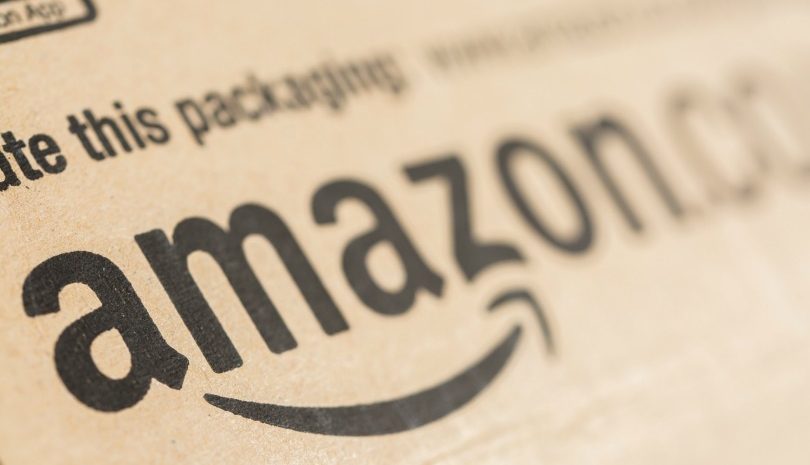After one year on Amazon, three retailers reveal what sales are like

Almost twelve months ago to the day, Amazon launched its local marketplace and retail offering in Australia, and it’s hard to overstate how highly anticipated the event was.
Retail analysts, executives, investors and consumers had been wondering for months when the US retail giant would arrive Down Under, and in what form.
Depending whom you spoke to, Amazon was either going to decimate the Australian retail industry, or fail utterly, as had so many other international businesses. The truth was likely to be somewhere in the middle, though expectations were so high leading up to the launch that the resulting disappointment was almost inevitable.
The headlines on December 5, 2017, noted that consumers were “not impressed” by the website’s range and pricing, leaving retailers feeling “buoyed”.
But Amazon said the launch, which included millions of products in 20 categories, had the highest volume of sales of any first day in a new market in the company’s history. And since then, Amazon has continued to expand into new categories and grow the number of sellers on its marketplace.
There are now over 80 million products across 27 categories and nearly 10,000 sellers on the platform. The company has opened a second fulfilment centre in Sydney, launched its third-party logistics solution, Fulfilment by Amazon (FBA), introduced its loyalty program, Amazon Prime, and hosted local sales events, Prime Day and Black Friday, for the first time. It has even found a way to re-open its global marketplaces to Australian shoppers following the introduction of GST on low-value imports in July of this year.
For customers, it’s safe to say that Amazon today is a much more compelling proposition than Amazon a year ago. But what about for businesses?
There are two sides to this question of course. On the one hand, major retailers like Harvey Norman, JB Hi-Fi and eBay are competing with Amazon for customers. But on the other hand, some retailers, like Beacon Lighting and PAS Group, are using Amazon’s marketplace to grow their online sales.
Speaking to brands and retailers that have listed products on the platform reveals a mixed bag. While some sellers are trading at a truly impressive clip, others say their sales on Amazon are insignificant compared to other channels, such as their own website or eBay. The level of success on Amazon seems to depend on the category, type of partnership with Amazon and level of marketplace integration sophistication that the seller brings to the table.
Here are three examples of different seller experiences on Amazon so far.

Canningvale says Amazon is now one of its leading sales channels.
Canningvale: Doubling down
Jordan Prainito is managing director of Canningvale, a textile brand specialising in sheets and towels that used to sell through bricks-and-mortar stores, including Myer and David Jones, before shifting its focus online. It now sells through its own website, as well as a number of marketplaces, including eBay, Catch and, as of last December, Amazon Australia.
While sales were slow at first, Prainito said Canningvale has seen steady growth, with a strong uptick ahead of sales events like Prime Day this past July.
“Whilst we expected the uptick in sales, we were not expecting to sell out of the majority of our discounted inventory so quickly,” Prainito told IR. “We saw a 500 per cent increase in sales during Prime Day.”
Canningvale uses Amazon’s FBA solution, which, according to Prainito, provides cost-efficient warehousing and postage fulfilment. It also means that Canningvale products appear as Prime-eligible, which can be a major sales driver, especially during promotional events. The brand doubled the amount of stock it sent to FBA in anticipation of Black Friday and Cyber Monday, but Prainito said the sales didn’t reach expectations.
“Interestingly, eBay has seen substantial growth for Canningvale over the last quarter,” he said.
Looking ahead, Prainito only sees Amazon becoming more important to the Canningvale business, as it continues to reach customers directly through online channels.
“Amazon fits well into that strategy for us,” he said. “As long as we hone our offers to match consumers’ expectations when shopping at Amazon, we should continue to see steady upward growth with peak sales events throughout the year, which we can use to move underperforming stock as required, whilst also providing customers with incredible value.”
Prainito believes that Amazon’s focus on value will pay off over the next few years, as the Australian economy slows.
“They are a company that has the wherewithal to hang in there for the long term, I expect that we will see steady growth from them year on year,” he said.

Beacon Lighting sells a range of Lucci products on Amazon
Beacon Lighting: Disappointing start
Specialty lighting retailer Beacon Lighting has been selling on Amazon overseas for some time and joined the marketplace in Australia soon after it launched in December 2017. Locally, Beacon offers a range of products from its private label brand Lucci on the platform, but according to online marketing manager, Rachael Mazur, sales so far have been slower than expected.
“Our biggest challenge has been low visibility of our listings. Without promoted listings available in region, we are limited with what more we can do to influence traffic and sales growth,” Mazur told IR.
While Beacon has more than doubled its average monthly sales on Amazon in the last six months compared to the first six months, Mazur said the retailer continues to see much stronger performance on eBay, Google Merchant Centre and especially its own website.
Sales through Amazon have remained slow despite Beacon’s use of FBA, which makes its products Prime-eligible, and participation in Amazon promotions like ‘Daily Deals’. Mazur said that sales events, including Prime Day and Black Friday, have not had a significant impact on sales.
Nevertheless, she is optimistic that the platform will continue to gain popularity among Australian consumers, leading to a pick-up in sales in future.
“We are optimistic that our Amazon sales will grow over time,” she said.
“Beacon has always viewed Amazon as an opportunity to meet our customers’ needs, wherever they are shopping. We hope that as Australian consumers become more comfortable using the marketplace and new features are rolled out in region, we will see more business come from Amazon.”

PAS Group has listed its Review brand on Amazon.
PAS Group: Looking up
PAS Group owns and operates a range of fashion brands, including Review, Jets, Black Pepper, Yarra Trail, White Runway, Marco Polo, Bondi Bather and Designworks, a supplier of brands including Everlast to major fashion retailers, such as Target.
According to PAS Group’s head of e-commerce Anna Samkova, Amazon approached the retailer prior to launch and invited the company to sell all its brands on the marketplace. PAS Group ultimately decided to proceed with four brands – Review, Bondi Bather, Everlast and B.O.D. by Finch – but for the first several months, Samkova said, sales were less than impressive.
“I’m sure other industries were successful, but in apparel, we didn’t really see sales coming through,” she told IR.
According to Samkova, the process of listing products left a lot to be desired. Tasks that took the company a matter of hours on other marketplaces took days on Amazon, though Samkova concedes the process could be more straightforward for categories like books and technology than for fashion.
PAS Group recently partnered with e-commerce company ChannelAdvisor to optimise its product listings on the marketplace and centralise product information across different marketplaces, including Amazon, eBay, Catch and The Iconic.
After going live with the newly optimised product listings, PAS Group’s Review brand saw sales exceed the previous four months combined in just 48 hours. Samkova says the key is getting the product template exactly right.
PAS Group operates Review on Amazon on a seller basis, the more-common marketplace model, where brands are responsible for listing, managing and fulfilling all orders themselves, while Everlast, Bondi Bather and B.O.D. by Finch operate on a vendor basis, an invitation-only relationship, where Amazon buys products from the supplier and manages everything from pricing to marketing itself.
While sales are generally higher under the vendor model, Samkova points out two major concerns for brands. The first is Amazon’s payment term, which is 90 days. The second is its discounting policy, which isn’t always discussed with suppliers. This could potentially threaten a brand’s relationship with other retail partners.
Comment Manually
You must be logged in to post a comment.

No comments